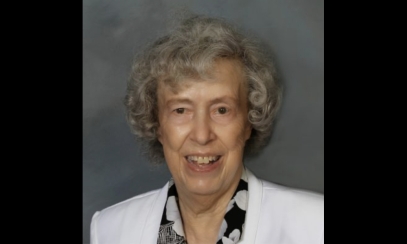
Logic, love, and life: Views on in vitro fertilization and the tiniest of human lives
It is hard to miss in the news that the Alabama Supreme Court has ruled that frozen embryos are extrauterine children with the same rights to protection as any minor child. That point alone has been subject to wide ranging commentary, but the ruling also has rekindled debate around the practice and future of in vitro fertilization.
What does all of this mean to Catholics in the Diocese of Birmingham?
The Ruling
The case brought before the Alabama Supreme Court involved civil suits against a Mobile fertility clinic following the accidental destruction of embryos cryogenically stored at the clinic. Plaintiffs alleged wrongful death under the Alabama Wrongful Death of a Minor Act of 1872.
A lower court dismissed the suits on the grounds that the frozen embryos did not fit within the definition of minor children and were not subject to protection under the wrongful-death statute. In publishing its 8-1 reversal on that matter, the Alabama Supreme Court found that:
- While the Wrongful Death of a Minor Act did not define a minor child within the law, a 2011 decision by the Alabama Supreme Court held that an unborn child qualifies as a "minor child" under the Act, regardless of that child's viability or stage of development.
- Alabama law has long recognized that human life begins at conception.
- Under the Sanctity of Life section of the Alabama Constitution, courts are directed to "construe ambiguous statutes in a way that protect[s] … the rights of the unborn child equally with the rights of born children, whenever such construction is lawful and appropriate."
In a news interview following the ruling Bishop Steven J. Raica of Birmingham, specifically called out the Sanctity of Life amendment, adding that it and the ruling “put into focus that all life should be treated with the respect and dignity afforded to it by God.” He also noted, “Our prayers that we often say in church, that life should be respected from the moment of conception to natural death, come into play here. As we examine the question on which the court ruled, it appears very much in concordance with our hopes and prayers.”
On in vitro fertilization
Bishop Raica also addressed a key topic stemming from the ruling: concerns around the practice of in vitro fertilization (IVF). While national media has focused on the potential impacts of the ruling on the IVF industry due to liability concerns, many Catholics are unfamiliar with the Church’s teaching on the practice.
“It is truly a noble desire when women and couples seek to have children, particularly in going against prevailing societal notions that women should not be burdened by children but rather pursue other dreams,” said Bishop Raica. “While the in vitro fertilization industry presents itself as the only solution for couples yet unable to have children, the practice is fraught with many unintended consequences and unfettered risks that often are overlooked. Further, one must recognize that in vitro fertilization occurs outside of the body, separated from the intimate act of conjugal love between a man and a woman in the bond of marriage and thus, found to be morally unacceptable by the Church.”
The bishop continued: “One of the beautiful things about our teaching is that it holds the child as a supreme gift above all, given to us through the means of the husband and wife through the conjugal act, in providing for a way to receive this gift from God, Himself. In vitro fertilization risks reducing this gift to a property, a right, and invokes response of a principle of moral theology that, ‘the ends don't justify the means.’”
An additional concern with in vitro fertilization was recognized in the Court’s decision: the creation of multiple embryonic children for one successful implant. That process ultimately results in destruction of human life when those embryos are no longer needed or are rejected by the parents due to genetic disorder or even the sex of the unborn child.
“Certainly, the medical community has achieved some amazing results in aiding couples in their noble and earnest quest to have a family,” noted Bishop Raica. “Such processes need reasonable guardrails so as to not give into the notion that ‘anything goes’ or accept the compromising of the dignity of human life.”
Bishop Raica went on to encourage couples “to continue in their journey toward fulfilling their dreams to have a family and seek ethical ways to accomplish this goal.”
According to Birmingham area physician, Dr. Nicholas Kongoasa, Chief Medical Officer at Reproductive Health Medicine and Gynecology in Gardendale, there are two main schools of thought in the treatment of infertility: “One is about bypassing disease processes, the other employs restorative treatment. Where IVF uses modern technology to bypass disease, the other seeks to restore reproductive function.
“That approach,” Dr. Knogoasa said, “provides an alternative to in vitro fertilization by searching for the ‘why’ and treating the underlying cause – looking at infertility more as a symptom, rather than as a diagnosis.”
Debates around the recognition of embryonic children and in vitro fertilization are sure to continue, but at the core of all these debates, an immutable fact remains: Each of us is called by God to respect human life, in all of its forms, which begins at the moment of conception.
The Alabama Supreme Court Decision of Feb. 16 can be read here. For a closer look at the Church’s teaching, please consult the Congregation for the Doctrine of the Faith’s Instruction on Respect for Human Life in its Origin and on the Dignity of Procreation.



